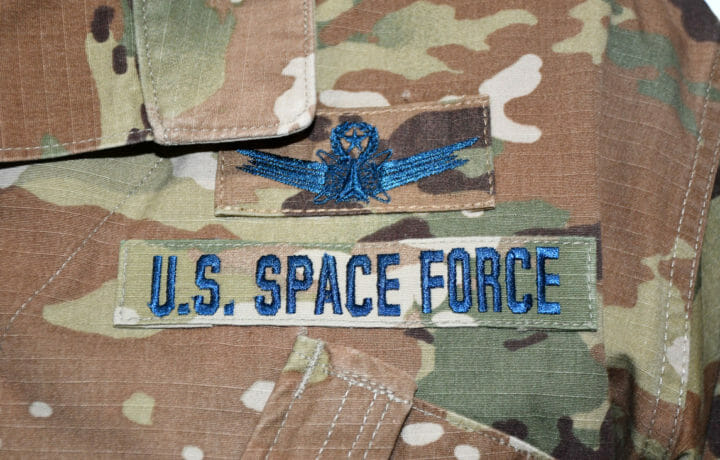Working remotely and working on classified projects were once mutually exclusive concepts. There was a time when it would have simply been impossible to even imagine that remote and classified work could go hand-in-hand. But then four years ago when the country was gripped by the COVID-19 pandemic things began to change.
Though workers have steadily returned to the office, there are still plenty of Americans who continue to work remotely. That has included those in the U.S. military, and the United States Space Force – the sixth and newest branch – could soon begin testing a remote-work solution.
Last year, the Space Force awarded General Dynamics Information Technology (GDIT) an $18 million other transaction authority agreement to develop a prototype digital infrastructure dubbed Enigma, which could allow those working within the Space Systems Command (SSC) to collaborate in a multi-enclave, cloud-based shared network.
No Riddle to The Enigma Project
According to GDIT, which is collaborating with Space Force to develop, “Enigma will provide a cloud-based environment where both industry and DoD can collaborate on a shared network. Enigma is scalable and accessible to all Space Force engineering and acquisition missions and creates the ability to connect to anyone, anywhere, anytime at multiple security enclaves.”
GDIT began working with SSC in early 2023 to build the U.S. Space Force’s digital backbone to support its acquisition mission – and that included the creation of the collaborative network and a contractor-operated digital environment that could provide Platform-as-a-Service (PaaS) capability. The network was developed to incorporate integrated services from contractors, vendors, and even third-party applications – notably the Pentagon’s Impact Level 6 (IL6), which is currently employed for systems that contain data deemed critical to national security and require maximum protection against unauthorized access or manipulation.
As expected, due to its support for classified information sharing, Enigma employs a zero-trust solution to deliver identity, credential, and access management (ICAM), which provides enhanced security and supports dynamic data-sharing decisions. In addition, GDIT utilized automation for IT operations (AIOps), and software factory approaches to streamline and automate many of the Enigma network functions. According to the company, that enables it to support the Space Force program while also driving both speed and consistency.
“This resulting digital services ecosystem will further drive resilient, secure information-sharing to anyone, anywhere, at any time,” Travis Dawson, GDIT’s senior director for Project Enigma, told DefenseScoop, adding, “Working in a government setting and having the ability to sit at one device and do classified and unclassified work on the same device is monumental. Rather than having to leave your device and go to a secure facility, login with some classified credentials, etc., you can do that from one device.”
NSA Approval – And Some Restrictions
The platform was presented to approximately 200 government stakeholders earlier this month at Los Angeles Air Force Base (AFB), California. GDIT presented some of Enigma’s capabilities, which included digital engineering tools, and an IT service management desk. It also presented the initial operating capability of Project Enigma’s Commercial Solutions for Classified (CSFC) offering, which has been approved by the National Security Agency (NSA).
The CSFC allows remote work to access classified networks either in-office via a trusted thin client desktop version or remotely on a laptop. However, the latter option does have limitations.
Dawson suggested it wouldn’t be something that would be used at the local Starbucks, but rather in a secure environment – such as a home office without windows when no one else is present.
Enigma could expand with additional partners, but GDIT hasn’t disclosed which cloud service providers might be integrated into the program. However, as DefenseScoop reported, it would likely include those companies already approved by the Pentagon’s Joint Warfighting Cloud Capability contract vehicle – which includes such tech giants as Microsoft, Amazon Web Services, Google, and Oracle.



